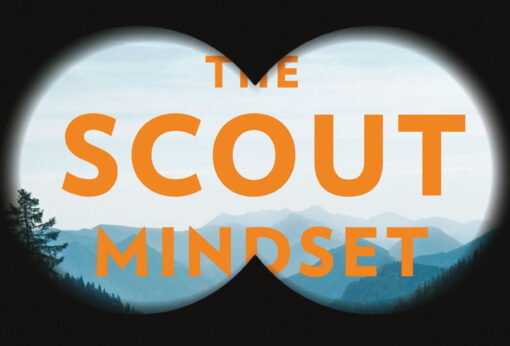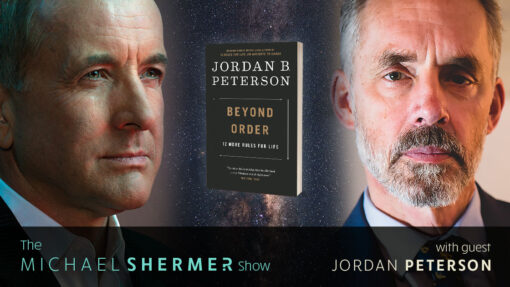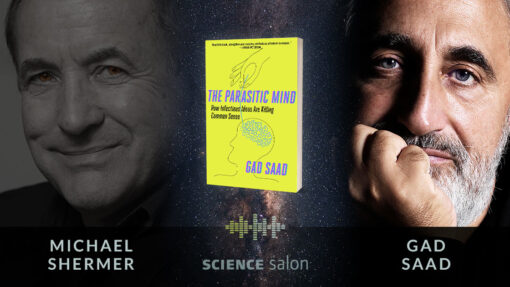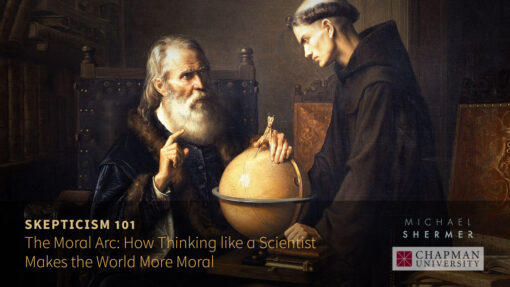
In episode 177 of Michael Shermer’s podcast, he speaks with neuroscientist and literature professor Dr. Angus Fletcher about 25 of the most powerful developments in the history of literature, from ancient Mesopotamia to Elena Ferrante.


In episode 177 of Michael Shermer’s podcast, he speaks with neuroscientist and literature professor Dr. Angus Fletcher about 25 of the most powerful developments in the history of literature, from ancient Mesopotamia to Elena Ferrante.
In episode 177 of Michael Shermer’s podcast, he speaks with neuroscientist and literature professor Dr. Angus Fletcher about 25 of the most powerful developments in the history of literature, from ancient Mesopotamia to Elena Ferrante. PLUS: From now through May 3, 2021 all print and digital back issues of Skeptic magazine are on sale for only 99 cents each! Now is the time to complete your collection!

Admitting our beliefs are false can feel like a failure, a sign of weakness. Instead, we should look at changing our mind as an ‘update.’ The following is a review by Michael Shermer of The Scout Mindset: Why Some People See Things Clearly and Others Don’t by Julia Galef (Portfolio).

Michael Shermer and Jordan Peterson discuss: the balance between chaos and order • Maps of Meaning • truths: objective, subjective, historical, political, religious, and literary • why all countries aren’t democracies • the appeal of populist, authoritarian leaders • the danger of assessing according to race, sex, class and power • oppression-redemption myths • how Peterson’s dark dreams and mental health issues inform his worldview as tilting toward the darker side of humanity.
In episode 174, join Michael Shermer and Jordan Peterson (bestselling author of 12 Rules for Life) for this extraordinary conversation based on Peterson’s new book Beyond Order. PLUS: Save 40% on new digital subscriptions to Skeptic Magazine via Pocketmags.com, now through April 27, 2021!
In episode 152 of The Michael Shermer Show, Michael responds to critics, reminding us that whether a particular conspiracy theory is true or false very much matters — especially those in the realm of politics, economics, and ideology, which as we’ve seen matters very much to the stability of our democracy and trust in the institutions that keep society stable.

In episode 152, Dr. Michael Shermer responds to critics of episode 151, reminding us that the truth or falsity of a claim of any kind that can be adjudicated by science and reason applies not just to astrologers, psychics, UFO proponents, and Big Foot hunters (all of which we cover in Skeptic magazine), but to conspiracy theories, including and especially those in the realm of politics, economics, and ideology, which as we’ve seen matters very much to the stability of…
In Science Salon podcast # 136, Michael Shermer speaks with Gad Saad about his new book The Parasitic Mind: How Infectious Ideas Are Killing Common Sense.

Shermer and Saad discuss: dangerous idea pathogens • ideological parasites • the origin of political correctness and how it was corrupted • identity politics and how it perpetrates bigotry, racism, and misogyny • the psychology of victimhood • virtue signaling and why it isn’t virtuous • why social justice is injustice • • the corruption of postmodernism • Islamophobia • diversity, inclusion and equity • safe spaces, microaggressions, trigger warnings • liberalism • the paradox of tolerance, and more…

In this, the final lecture of his Chapman University Skepticism 101 course, Dr. Michael Shermer pulls back to take a bigger picture look at what science and reason have done for humanity in the realm of moral progress. Watch The Moral Arc: How Thinking Like a Scientist Makes the World More Moral.
In this, the final lecture of his Chapman University Skepticism 101 course, Dr. Michael Shermer pulls back to take a bigger picture look at what science and reason have done for humanity in the realm of moral progress. Watch The Moral Arc: How Thinking Like a Scientist Makes the World More Moral.

In this lecture Dr. Michael Shermer addresses one of the deepest questions of all: what is truth? How do we know what is true, untrue, or uncertain?
In a lecture, Dr. Michael Shermer addresses one of the deepest questions of all: what is truth? Following that, Lee McIntyre and Michael Shermer debate whether we are living in a Post-Truth era of fake news and alternative facts.

Is post-truth the political subordination of reality? Is truth itself any more under threat today that in the past? Have the populists & postmodernists won the day? In response to Dr. Lee McIntyre’s essay, Dr. Michael Shermer asserts that people are not nearly as gullible as some believe.

Are we living in a Post-Truth era of fake news and alternative facts? Dr. Lee McIntyre avers that we must take seriously the threat to truth posed both by those who would subvert the truth for political gain, and also by those who would deny that such a threat actually exists.
Whether at home or on the go, the SKEPTIC App is the easiest way to read your favorite articles. Within the app, users can purchase the current issue and back issues. Download the app today and get a 30-day free trial subscription.







